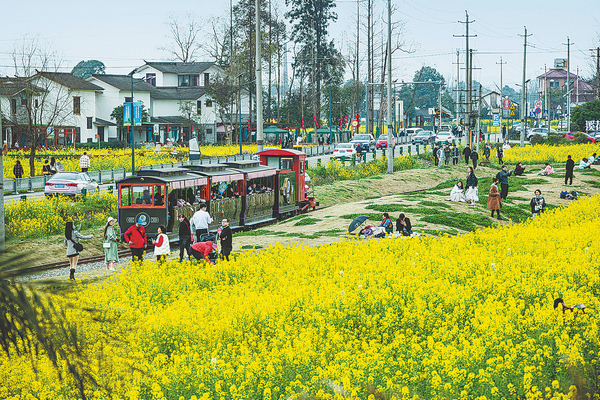

"Once I saw a pork rib restaurant with top reviews in Yanqing (district), I went there with my friends on a Saturday," Shuai says, adding: "It was great."
Shuai might be an extreme case, but a great many Chinese travelers have shortened the radius of their travel footprints to reduce the risk of exposure to COVID-19.
They have shown a preference for scenery close to home and take "micro vacations" that are smaller in scope and considerably shorter than a normal getaway. They have started to pay more attention to natural beauty and experiences along the way. It doesn't even matter if they have been there before, as long as it offers a novel experience.
"We have been booked up for a month," says Pei Yuhui, a homestay operator in northwestern Beijing's Yanqing district.
During the pandemic, urban residents have become used to spending vacation days at suburban homestays as a way of shrugging off the stresses of city life, even for a brief time, Pei explains.
As cases continue to crop up, and there are some regional outbreaks here and there, a majority of Beijing residents have responded to the local authority's call to stay within the boundaries of the city, boosting village tourism in the peripheral areas of the capital.
The average travel distance stood at 131.8 kilometers during the Spring Festival holiday, down 1.5 percent as compared with the same period last year, the China Tourism Academy reports.